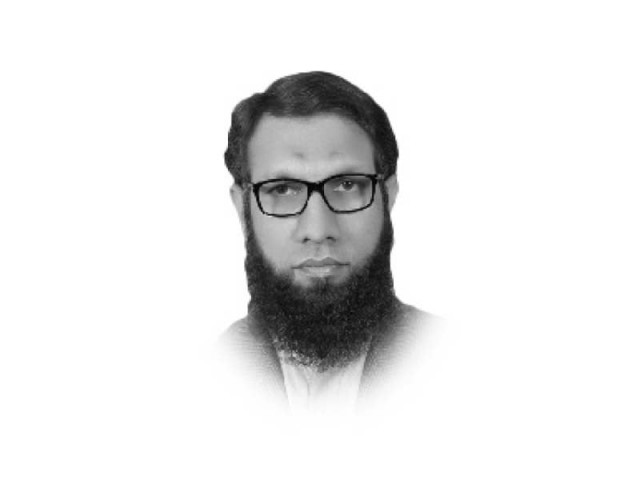Danger of decontextualising terrorism
October 7, 2023 is now etched in global consciousness as day Hamas launched brutal and unprecedented attack on Israel.

When violence erupts — in Gaza, Kashmir or any other conflict zone — governments, media and international actors often rush to frame it in stark, moralistic terms. These narratives tend to portray events as isolated, unprovoked, and driven by evil intent. Terrorism, extremism and barbarism become the labels of choice. But beneath the rhetoric lies a dangerous erasure of context. If we are to seriously engage with the roots of political violence and work toward peace, we must resist the temptation to strip away history, grievance and complexity.
October 7, 2023 is now etched in global consciousness as the day Hamas launched a brutal and unprecedented attack on Israel. The Israeli state and its allies were quick to label it a singular act of terrorism — an irrational outburst driven by ideology, and, predictably, blamed on Iran's regional ambitions. This framing, while convenient, elides decades of history. For Palestinians, the attack - however horrifying — was seen by some as an act of desperation, born out of suffocating conditions in Gaza, a territory described as the world's largest open-air prison. Blockades, systemic deprivation, occupation, and a peace process abandoned long since form the backdrop to that day's events.
This clash of narratives — one decontextualised, the other rooted in history — is not unique to the Israel-Palestine conflict. Just recently, an attack in Pahalgam in Indian-administered Kashmir was swiftly categorised as an act of terror. No effort was made to examine the political and historical circumstances that continue to haunt the region: revocation of autonomy, mass surveillance, suppression of dissent, and the presence of hundreds of thousands of troops. While no form of terrorism can or should be excused, we must ask: What conditions allow such violence to take root and persist? What drives individuals to embrace violence when political voice and dignity are systematically denied?
Context, in this sense, is not a moral justification — it is an analytical necessity. Stripping violent acts of their historical and political contexts reduces them to pathologies. This reductionism is not only intellectually lazy; it is politically dangerous. It absolves those in power of accountability. It turns calls for justice into security threats. And it ensures that cycles of violence will continue, because the structural grievances that fuel them remain unaddressed.
We must challenge the reflexive urge to view acts of violence through the lens of innocence and guilt alone. Instead, we should ask harder questions: What are the long-term effects of occupation? How does chronic humiliation, dispossession or disenfranchisement shape a population's psyche over generations? What happens when political grievances are ignored for decades and military solutions become the only language spoken by the state?
The politics of decontextualisation are not accidental. They serve to maintain existing power structures. When violence is presented as irrational or purely ideological, it permits unchecked retaliation, legitimises crackdowns, and marginalises dissenting voices who dare to offer more nuanced perspectives. Indeed, even calls for contextual understanding are often condemned as apologism. But clarity is not complicity.
To understand is not to condone — it is to confront the full truth. If we genuinely seek to reduce political violence, we must prioritise root-cause analysis over reactive condemnation. This means revisiting unresolved historical traumas, revising exclusionary governance models and recognising the legitimacy of political aspirations — even those inconvenient to powerful actors.
International institutions, too, have a role to play. Rather than defaulting to the dominant state-centric narratives, they must amplify perspectives from the margins. Peacebuilding cannot succeed where justice is absent, and justice cannot exist where context is erased. This also calls for a shift in media practices. Sensational coverage that reduces conflicts to soundbites or battlefield imagery reinforces public amnesia.
Journalism must do more to excavate the historical layers beneath the headlines. Only then can societies form informed opinions, and only then can democratic accountability be meaningfully exercised.
Finally, educators, scholars and public intellectuals must resist pressures to sanitise complexity. In classrooms and public discourse alike, we need to reclaim the importance of historical consciousness. Conflicts don't begin with the most recent act of violence. They begin with land dispossession, cultural erasure, broken promises and political betrayal.
The world is at an inflection point. The age of empire is not over — it has simply changed forms. Border conflicts, settler colonialism, surveillance regimes and extractive geopolitics continue to generate unrest across continents. If we are to find a path forward, we must resist the comforting simplicity of moral binaries and instead lean into the discomfort of context. Understanding the world doesn't mean justifying its cruelties. It means seeing clearly what needs to change.
















COMMENTS
Comments are moderated and generally will be posted if they are on-topic and not abusive.
For more information, please see our Comments FAQ